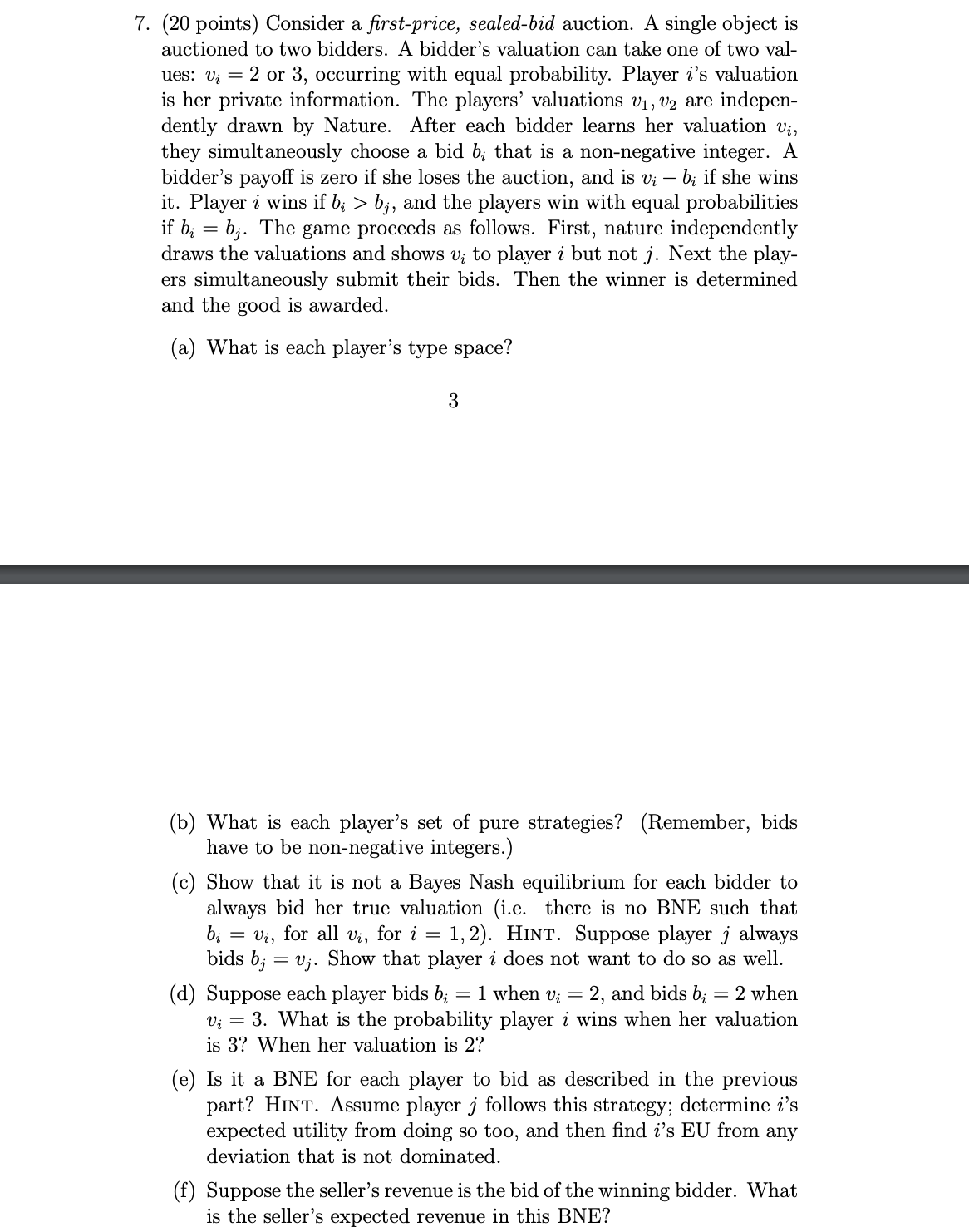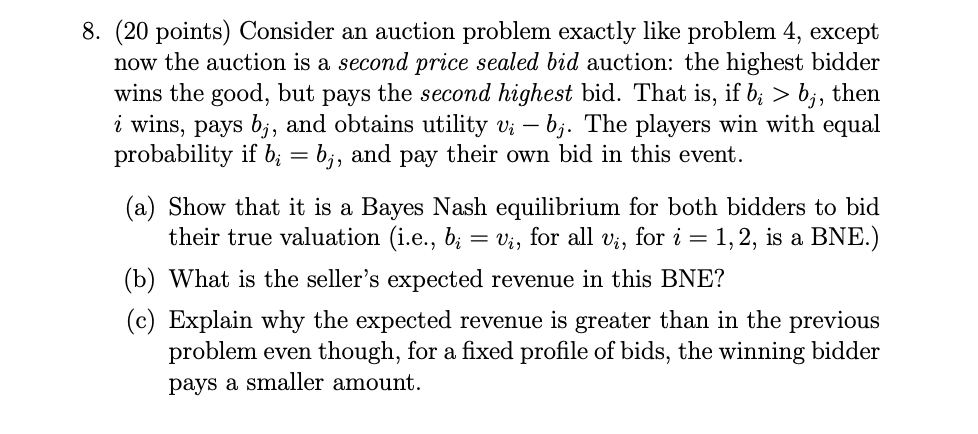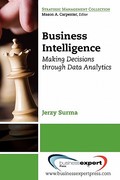Please refer below to the questions I have. The book for this course is called Games, strategies and Decision making (2nd edition)
7. (20 points) Consider a rst-price, sealed-bid auction. A single object is auctioned to two bidders. A bidder's valuation can take one of two val- ues: v, = 2 or 3, occurring with equal probability. Player i's valuation is her private information. The players' valuations 01,02 are indepen- dently drawn by Nature. After each bidder learns her valuation 1),, they simultaneously choose a bid b, that is a non-negative integer. A bidder's payoff is zero if she loses the auction, and is v, b, if she wins it. Player 2' wins if b, > bf: and the players win with equal probabilities if b,- = by. The game proceeds as follows. First, nature independently draws the valuations and shows 1),; to player '31 but not j. Next the play- ers simultaneously submit their bids. Then the winner is determined and the good is awarded. (a) What is each player's type space? 0?) (C) (d) 3 What is each player's set of pure strategies? (Remember, bids have to be non-negative integers.) Show that it is not a Bayes Nash equilibrium for each bidder to always bid her true valuation (i.e. there is no BNE such that b,- = 1),, for all 1),, for i = 1,2). HINT. Suppose player 3' always bids by = \"j- Show that player i does not want to do so as well. Suppose each player bids b,- = 1 when 1),- = 2, and bids b, = 2 when \"0,; = 3. What is the probability player 2' wins when her valuation is 3'? When her valuation is 2'? Is it a BNE for each player to bid as described in the previous part? HINT. Assume player 3' follows this strategy; determine is expected utility from doing so too, and then nd i's EU from any deviation that is not dominated. Suppose the seller's revenue is the bid of the winning bidder. What is the seller's expected revenue in this BNE? 8. (20 points) Consider an auction problem exactly like problem 4, except now the auction is a second price sealed bid auction: the highest bidder Wins the good, but pays the second highest bid. That is, if b, > hi: then 42 wins, pays hi, and obtains utility v,- 335- The players Win with equal probability if b, = bi: and pay their own bid in this event. (a) Show that it is a Bayes Nash equilibrium for both bidders to bid their true valuation (i.e., bi = vi, for all 19,-, for i = 1, 2, is a BNE.) (b) What is the seller's expected revenue in this BNE? ((3) Explain why the expected revenue is greater than in the previous problem even though, for a xed prole of bids, the winning bidder pays a smaller amount








